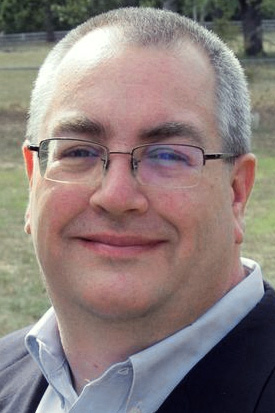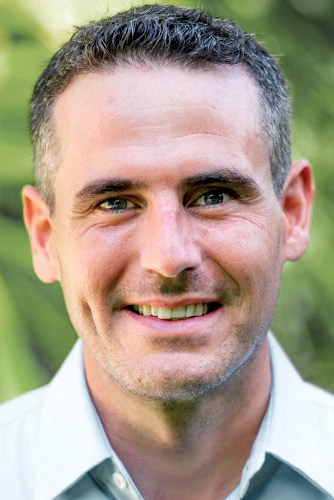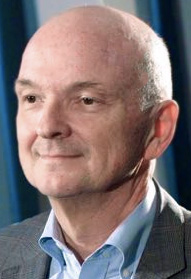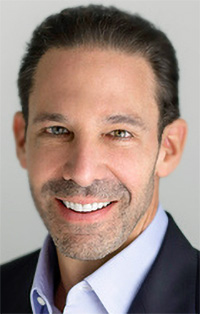/ Recently Commented
Trust Binding
 A few months ago, there was a lot of discussion that despite its claims, Zoom did not actually offer end-to-end encryption. They're in the process of fixing that, which is good, but that raises a deeper question: why trust their code? (To get ahead of myself, this blog post is not about Zoom.) If Zoom has the key but doesn't abuse it, there isn't a problem, right? Let's fast-forward to when they deploy true end-to-end encryption. Why do we trust their code not to leak the secret key? more
A few months ago, there was a lot of discussion that despite its claims, Zoom did not actually offer end-to-end encryption. They're in the process of fixing that, which is good, but that raises a deeper question: why trust their code? (To get ahead of myself, this blog post is not about Zoom.) If Zoom has the key but doesn't abuse it, there isn't a problem, right? Let's fast-forward to when they deploy true end-to-end encryption. Why do we trust their code not to leak the secret key? more
- Steven Bellovin
- Comments: 1
- Views: 7,408
Top-Level Domain Bias in Search Engine Indexing and Rankings
 As a search engine optimization (SEO) and domain name consultant, one of the questions I get asked most often about domain names is whether or not the domain name or TLD (Top-Level Domain) matters. Will the domain name ending have an effect on SEO or search engine rankings. Are certain domain name endings preferred by the search engines over other domain name extensions? I decided to answer this question... more
As a search engine optimization (SEO) and domain name consultant, one of the questions I get asked most often about domain names is whether or not the domain name or TLD (Top-Level Domain) matters. Will the domain name ending have an effect on SEO or search engine rankings. Are certain domain name endings preferred by the search engines over other domain name extensions? I decided to answer this question... more
- Bill Hartzer
- Comments: 3
- Views: 18,665
Your Domain Name Does Matter in Search Results – Microsoft Says So!
 I stumbled upon a study conducted by Microsoft eons ago back in the paleolithic era of search; 2012... It is about how "premium domains" are perceived by the consumer when seeing them in the search results compared to a lower value "non-premium" domain. I like to use quotations sparingly, but I felt it was necessary because the varying opinions on premium v non-premium domains is a bridge I do not want to cross in this post. more
I stumbled upon a study conducted by Microsoft eons ago back in the paleolithic era of search; 2012... It is about how "premium domains" are perceived by the consumer when seeing them in the search results compared to a lower value "non-premium" domain. I like to use quotations sparingly, but I felt it was necessary because the varying opinions on premium v non-premium domains is a bridge I do not want to cross in this post. more
- Jeffrey Gabriel
- Comments: 1
- Views: 10,738
Can SpaceX Launch 30,000 Second-Generation Starlink Satellites? Maybe
 The bottom line is that success is not guaranteed, but neither is failure -- there is a non-zero probability of success. On May 26th, SpaceX applied for permission to launch 30,000 "second-generation" Starlink broadband Internet satellites. (Note that the software on Starlink satellites is updated about once a week). The application narrative states that the second-generation satellites will be configured... more
The bottom line is that success is not guaranteed, but neither is failure -- there is a non-zero probability of success. On May 26th, SpaceX applied for permission to launch 30,000 "second-generation" Starlink broadband Internet satellites. (Note that the software on Starlink satellites is updated about once a week). The application narrative states that the second-generation satellites will be configured... more
- Larry Press
- Comments: 2
- Views: 13,836
SpaceX Launches Another Batch of 60 Starlink Internet Satellites
SpaceX launched its eighth Starlink mission via the Falcon 9 rocket on Wednesday, carrying 60 more satellites for its Internet satellite constellation, bringing the total in operation on orbit to 480. more
- CircleID Reporter
- Comments: 1
- Views: 16,394
UN Secretary General’s Roadmap on Digital Cooperation: Creative Navigating in Stormy Cyberwaters
 When UN Secretary-General Antonio Guterres announced in January 2020 that he was preparing a global "roadmap for digital cooperation," he had no idea that six months later, the world had made a quantum leap into the digital age. Home office, distance learning, online shopping, and video conferencing have been around for a long time, but the standstill of the real world during the pandemic has led to an unexpected expansion of the virtual world. more
When UN Secretary-General Antonio Guterres announced in January 2020 that he was preparing a global "roadmap for digital cooperation," he had no idea that six months later, the world had made a quantum leap into the digital age. Home office, distance learning, online shopping, and video conferencing have been around for a long time, but the standstill of the real world during the pandemic has led to an unexpected expansion of the virtual world. more
- Wolfgang Kleinwächter
- Comments: 1
- Views: 18,618
What is Light-Touch Regulation?
 One thing I've noticed recently is that a lot of people are climbing on board the idea of building better broadband to rural America. Many people seem to think that the FCC can somehow act to fix a lot of the shortcomings of rural broadband - but in doing so, they have missed the entire point of what the FCC calls 'light-touch' regulation - because, from a practical perspective, broadband is not regulated at all. more
One thing I've noticed recently is that a lot of people are climbing on board the idea of building better broadband to rural America. Many people seem to think that the FCC can somehow act to fix a lot of the shortcomings of rural broadband - but in doing so, they have missed the entire point of what the FCC calls 'light-touch' regulation - because, from a practical perspective, broadband is not regulated at all. more
- Doug Dawson
- Comments: 1
- Views: 15,318
A 1998 IANA Technical Seminar I Will Never Forget
 In 1998, I was a lawyer working at Jones Day in Los Angeles, specializing in patent lawsuits. Specifically, I was a member of Jones Day's Technology Issues Practice, which sought to assist companies becoming involved in computer and communications technologies, including the Internet. Meanwhile, in early May the Internet Assigned Numbers Authority (IANA) was preparing to transition its home base from the University of Southern California's Information Sciences Institute (ISI) to a new, independent and not-for-profit organization. more
In 1998, I was a lawyer working at Jones Day in Los Angeles, specializing in patent lawsuits. Specifically, I was a member of Jones Day's Technology Issues Practice, which sought to assist companies becoming involved in computer and communications technologies, including the Internet. Meanwhile, in early May the Internet Assigned Numbers Authority (IANA) was preparing to transition its home base from the University of Southern California's Information Sciences Institute (ISI) to a new, independent and not-for-profit organization. more
- Louis Touton
- Comments: 1
- Views: 7,517
Thumb on the Scales
 Does the ICANN Board putting its thumb on the scale, change the status quo assumption of a Policy Development Process (PDP)? The primary assumption of most PDPs is that, in the absence of consensus for change, the status quo remains. Otherwise, Policy would be made by fiat by the PDP's Chair or Co-Chairs and there would be a mad rush to occupy those unpaid, thankless positions. more
Does the ICANN Board putting its thumb on the scale, change the status quo assumption of a Policy Development Process (PDP)? The primary assumption of most PDPs is that, in the absence of consensus for change, the status quo remains. Otherwise, Policy would be made by fiat by the PDP's Chair or Co-Chairs and there would be a mad rush to occupy those unpaid, thankless positions. more
- Paul McGrady
- Comments: 1
- Views: 9,343
Surveillance Capitalist in Chief
 Surveillance capitalism monetizes private data that it collects without consent of the individuals concerned, data to analyze and sell to advertisers and opinion-makers. There was always an intricate relationship between governments and surveillance capitalists. Governments have the duty to protect their citizens from the excesses of surveillance capitalism. On the other hand, governments use that data, and surveillance capitalism's services and techniques. more
Surveillance capitalism monetizes private data that it collects without consent of the individuals concerned, data to analyze and sell to advertisers and opinion-makers. There was always an intricate relationship between governments and surveillance capitalists. Governments have the duty to protect their citizens from the excesses of surveillance capitalism. On the other hand, governments use that data, and surveillance capitalism's services and techniques. more
- Klaus Stoll
- Comments: 1
- Views: 11,226
When It Comes to Domain Name Rights Protection, scapegoat.sucks
 It is not surprising that the phase 1 review of domain name rights protection mechanisms is delayed, but it is a bit of a surprise that in responding to a question posed in 2020, business executives and their lawyers replied with answers first offered and rejected five years earlier. In that time before COVID-19, the launch of the Vox Populi Registry and its dotSucks domain names drew quite a lot of attention. more
It is not surprising that the phase 1 review of domain name rights protection mechanisms is delayed, but it is a bit of a surprise that in responding to a question posed in 2020, business executives and their lawyers replied with answers first offered and rejected five years earlier. In that time before COVID-19, the launch of the Vox Populi Registry and its dotSucks domain names drew quite a lot of attention. more
- John Berard
- Comments: 1
- Views: 10,311
Is Teleworking Here to Stay?
 Broadband networks are stretched thin today due to the large numbers of adults and students working from home. There are many stories on the web that indicate that a lot of employees are not going to be going back to the office when the pandemic is over. Here are two stories about a trend towards more teleworking from the dozens that a Google search uncovered. more
Broadband networks are stretched thin today due to the large numbers of adults and students working from home. There are many stories on the web that indicate that a lot of employees are not going to be going back to the office when the pandemic is over. Here are two stories about a trend towards more teleworking from the dozens that a Google search uncovered. more
- Doug Dawson
- Comments: 1
- Views: 9,147
Is the Lockdown Driving Domain Registrations?
 Businesses across Europe face a new and challenging situation not seen in generations. A mass lockdown of society due to the coronavirus pandemic with thousands of businesses having been forced to send employees home. The societal impact is broad and deep; however, for ccTLD registries, beyond changes to how staff work, other business effects so far seem minimal. One aspect of registry business may, however, be changing. more
Businesses across Europe face a new and challenging situation not seen in generations. A mass lockdown of society due to the coronavirus pandemic with thousands of businesses having been forced to send employees home. The societal impact is broad and deep; however, for ccTLD registries, beyond changes to how staff work, other business effects so far seem minimal. One aspect of registry business may, however, be changing. more
- Patrick Myles
- Comments: 1
- Views: 8,076
China Will Remember the U.S. Huawei War for a Generation
 Only an idiot would believe that the U.S. is blocking TSMC manufacture of Huawei cell phone chips because of security fears. This is a commercial rivalry. The U.S. wants to put China's leading technology company out of business. We will fail, of course, at a price far higher than D.C. understands. The U.S. is ready for China's immediate countermeasures, even if Apple's stock price falls $hundreds of billions. But the long-run price will be devastating. more
Only an idiot would believe that the U.S. is blocking TSMC manufacture of Huawei cell phone chips because of security fears. This is a commercial rivalry. The U.S. wants to put China's leading technology company out of business. We will fail, of course, at a price far higher than D.C. understands. The U.S. is ready for China's immediate countermeasures, even if Apple's stock price falls $hundreds of billions. But the long-run price will be devastating. more
- Dave Burstein
- Comments: 1
- Views: 11,188
What’s Next for Ethos
 Since last fall, Ethos has actively engaged with ICANN and .ORG communities regarding our proposed acquisition of Public Interest Registry (PIR). Through that process, we demonstrated our desire to ensure that .ORG continues and thrives as an exemplary service for the mission-driven community. ICANN has now declined to consent to the proposed change of control of PIR. more
Since last fall, Ethos has actively engaged with ICANN and .ORG communities regarding our proposed acquisition of Public Interest Registry (PIR). Through that process, we demonstrated our desire to ensure that .ORG continues and thrives as an exemplary service for the mission-driven community. ICANN has now declined to consent to the proposed change of control of PIR. more
- Erik Brooks
- Comments: 2
- Views: 37,109